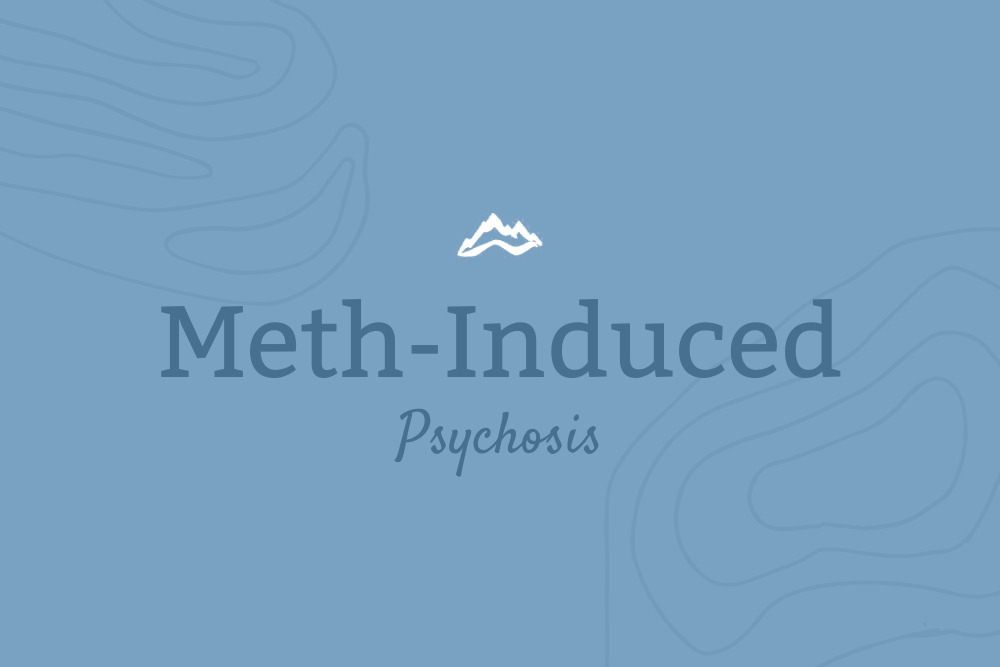Methamphetamine, or “meth,” is a synthetic stimulant—similar to the amphetamine component of ADHD medications, but faster-acting. Many people take meth illicitly for its euphoric effect, or in attempts to boost confidence or mitigate depression, unaware of the dangers of meth-induced psychosis and other side effects. Meth and other amphetamine-type stimulants are the second most abused drug family (after cannabis) in the world, with about 51 million users in all ethnic, economic and social classes.
These 51 million users include about 2.6 million people in the United States, more than half (1.5 million) of whom have full-blown methamphetamine use disorder, aka addiction.
Symptoms of Meth Addiction
Long-term meth addiction has devastating effects on body and brain. Common symptoms include:
- Chronic itching, accompanied by chronic scratching which frequently opens sores on the skin
- Serious dental problems
- Meth-induced psychosis
- Significant weight loss
- Lack of self-care
- Insomnia
- Unusually rapid or rambling speech
- Mood swings
- Anxiety, depression or brain fog (especially when someone goes without meth for longer than usual—“withdrawal” may also be indicated by extreme fatigue and desperate cravings for another dose)
One of these symptoms is lesser-known. What is meth-induced psychosis, and how does it impact your mental health?
Symptoms of Meth-Induced Psychosis
Psychosis induced by methamphetamine use produces symptoms similar to those of schizophrenia: indeed, the two conditions can be difficult for even doctors to tell apart, not least because drug addiction and mental illnesses often co-occur for a variety of reasons. Research indicates, however, that hallucinations (hearing or seeing things that aren’t really there) are more common when the psychosis is due to meth use.
Other symptoms of likely or possible psychosis:
- Inability to think clearly, even with conscious effort
- Chronic agitation
- Incoherent speech
- Paranoia—believing without cause that one is being stalked or persecuted, that others are “out to get me”
- Outbursts of panicked behavior: physically fleeing some imagined threat, trying to hurt oneself, lashing out at others under the delusion they are dangerous
Treatment and Long-Term Recovery
When psychotic symptoms are associated with methamphetamine addiction, the first step is to get professional help for detox and long-term abstention. This may be all the treatment needed: the majority of people who develop meth-induced psychosis find that symptoms disappear within a few weeks after they quit the drug.
A positive attitude, ongoing peer support, good overall health habits and treatment for co-occurring mental health disorders will guarantee you a positive prognosis no matter what other factors are involved.
Treatment for Meth-Induced Psychosis and Addiction in Prescott, Arizona
The risks of using methamphetamine are never worth any perceived benefits. Once meth or another drug becomes a reflexive “quick fix,” it can quickly progress to being the center of life, and to impacting jobs, relationships and health.
If you’ve already started in that direction, even if you’re already experiencing meth-induced psychosis, it’s never too late to get your life back. Canyon Crossing’s drug addiction treatment programs are specially geared to the unique needs of women with substance use disorders. Contact us to learn more and start planning your recovery.
Recommended articles:
- “A Comparison of Methamphetamine-Induced Psychosis and Schizophrenia: A Review of Positive, Negative, and Cognitive Symptomatology.” (Frontiers in Psychiatry, 10/10/2018)
- “Dual Diagnosis.” (National Library of Medicine)
- “Long-Term Effects of Meth (Methamphetamine) Use.” (VeryWellMind.com)
- “Methamphetamine Psychosis: Why It Happens and How You Can Get Help.” (WebMD.com)
- “Methamphetamine Research Report: What is the scope of methamphetamine use in the United States?” (National Institute on Drug Abuse)



